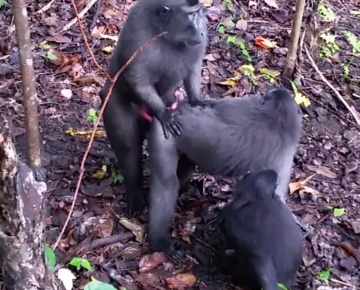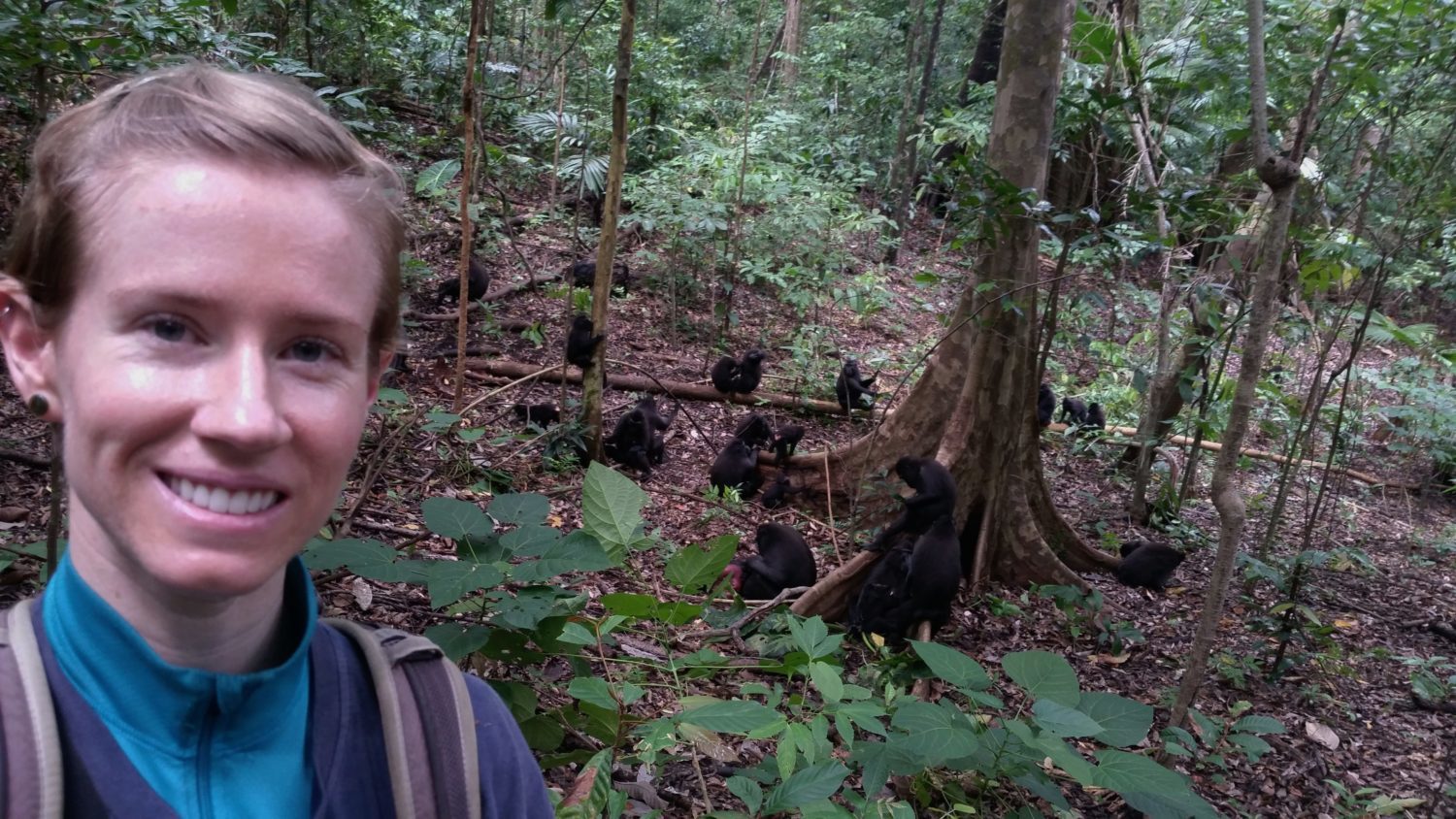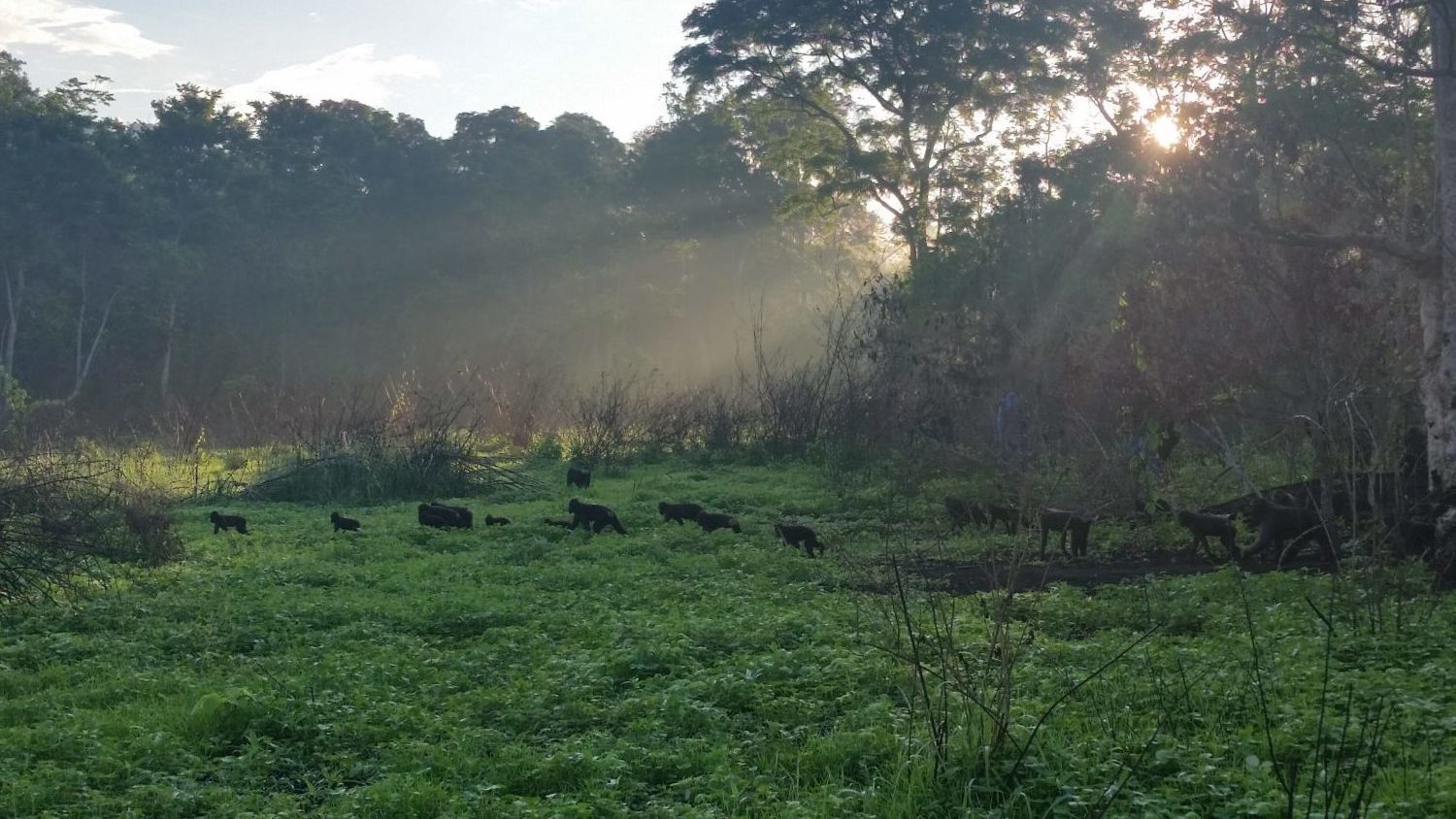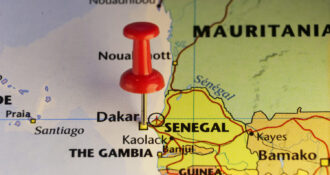Maura Tyrrell was awarded a Leakey Foundation Research Grant during our fall 2014 cycle for her project entitled “Effect of competition on male coalition patterns in crested macaques.” To read a brief synopsis of her project, click here.
This study explicitly examines male coalitionary behavior, conflict management and relationship quality as a function of the competitive context (within-group vs. extra-group competition) in wild crested macaques (Macaca nigra) in Tangkoko Nature Reserve, Indonesia. This study uses a socioecological framework to examine the extent to which coalitionary behavior, including partner choice and patterns of initiation, reflects both forms of competition and/or varies by the type of competitive context. It also examines whether these competitive contexts are related to relationship quality and conflict management patterns, e.g. reconciliation and ritualized greetings.

Fig 2: This former alpha suffered a severe bite wound on the head and forearm from a young male migrant who took over the alpha position.
Crested macaque males face high levels of both within-group and extra-group competition. Thus far we have observed evidence of intense competition from outside the group in the form of frequent intergroup encounters (figure 1) and immigration attempts by outside males, some of which result in serious injuries (figure 2). There have been 12 successful migrations into 2 habituated groups (figure 3), as well as 6 instances of re-entry into a group after being missing several months, and several unsuccessful attempts of lone males to join the groups. As expected, resident males form coalitions targeting outside males or newly immigrated males. High ranking males have the most at stake when a new male migrates into the group, since reproductive success is highly skewed in favor of the highest ranking males. However, participation in extra-group coalitions is not limited to high ranking males. Middle and low ranking males are frequently seen joining in attempts to oust males attempting to join the group. Coalitions directed at resident males within the group generally target low ranking males (and particular males within an unstable dominance rank), thus reinforcing the strict dominance hierarchy. It is apparent that some partner combinations are more common than others, with a few male participants making up a large proportion of within-group coalitions.

Fig 3: This new alpha male, Echo, received a lot of attention from females and juveniles. Once this new alpha migrated into group Rambo 1 in March and disrupted the stability of the group, a steady flow of migrants followed.
Despite the apparent antagonistic depiction of crested macaque male relationships, they are also observed to reconcile a proportion of their conflicts and participate in ritualized greetings, in which they exchange friendly behaviors, (e.g. mounting, mock biting, and/or mutual grasping of genitals) that are hypothesized to reduce tension in competitive contexts, reinforce social bonds and negotiate alliances among males of other species (figure 4). The next step is to determine the nature of the relationship between coalition participants in both within-group and extra-group coalitions to assess whether coalition partner choice varies by the competitive context, i.e. is partner choice related to relationship quality as predicted for within-group coalitions or is it more opportunistic as predicted
for extra-group coalitions? Additionally, I will assess whether the rank of the initiators of coalitions and conflict management patterns vary in each competitive context. High ranking males are predicted to initiate a larger proportion of conflict management behaviors and coalitions when outside males are in or near the group since they have the most at stake reproductively, while low-ranking males be more motivated to initiate conflict management patterns and coalitions with higher ranking males to hopefully increase their dominance or gain tolerance from higher ranking males when there are no outside near the group.










Comments 0